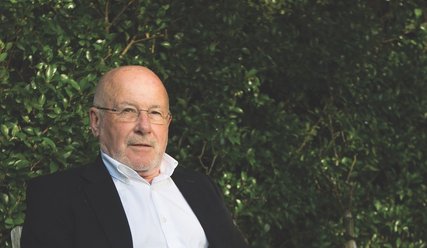Soul healing
In the wake of the Christchurch earthquakes, Dr Jeremy Baker noticed increasing rates of previously ‘unvoiced’ trauma rising to the surface in his patients and in the community at large. Whether related to a single traumatic event, or a more complex trauma stemming from experiences in childhood such as abuse, neglect or sexual abuse, a “hidden liquefaction” was rising in our midst.
Dr Jeremy Baker is a general practitioner with a special interest in mental health, a College medical educator and a previous mental health lead for the Pegasus Health PHO. Faced with such high levels of untreated trauma existing in his own community, he was motivated to search for ways to improve our knowledge of trauma informed care, tools for assessment and referral options.
Jeremy applied for the College’s Research and Education Committee funding in May 2022 and was awarded $11,450 towards his PhD research. The intention of Jeremy’s research, “is to strengthen the voices of individuals and communities in their own trauma recoveries and factor in their current contexts and resiliencies, including their cultural and faith backgrounds.” He presented his preliminary analysis at GP22: the Conference for General Practice.
Jeremy spoke about how trauma presents in the community and in the consultation room.
Patients will become angry and accusing, and be unable to hear you. They will be physically in the room but not mentally with you.”
They are not present with you because they are fighting to suppress trauma memory and are dissociating. People suffering from trauma are not in a space where they can respond to your questions cognitively. When they are operating on autopilot, the essential two-way communication between doctor and patient is lost. When this seems to be what is happening, could there be trauma in this person’s background? It might not be obvious, rather it could be just below the surface.
Trauma survivors have difficulty using cognitive/left brain thinking, so in group therapy sessions, Jeremy uses stories and metaphors of trauma from literature, to help patients begin to express their own stories. They would read these stories together and explore themes of abuse, abandonment, murder, and triumph, and the feeling that these create such as fear, grief, despair, and emotional agony. Patients were often reactive during these sessions, as the storytelling exposed their own emotions and thought patterns. The discussions helped them find the words to start expressing their own stories. Patients voiced new names for their trauma and in the moments of feeling that they were seen and heard, healing began to occur. Jeremy discovered that by building trust and learning to understand the language between doctor and patient, trapped emotional energy begins to flow back through the limbic system, and the trauma begins to resolve.
Many times a day, a cry for help could be sitting in your consult room. Although the height of the COVID-19 pandemic has passed, our communities are left suffering with increased levels of anxiety and other negative impacts on mental health. The timing is critical for general practice to be better equipped with mental health assessment options, and improved language concerning trauma and soul healing.
Do you have research interests that could benefit from funding?
Three times a year, the College’s Research and Education Committee awards funding to research that benefits general practice, rural general practice, and rural hospital medicine. Grants are typically $5,000 - $20,000 for individuals but up to $40,000 can be awarded. Applicants don’t need to be doctors or members of the College to apply. The next funding round will open in early 2023.
